“Acorning” Without Attachment
How Plum Village renewed my verve for being human.
“A healing hospital”—that’s how Sister True Dedication described Plum Village to me during a conversation this past summer. Earlier this month, I had a chance to spend a week there. Through great organizing efforts of Global Optimism, a couple hundred climate and nature leaders gathered at the Buddhist monastery in southwest France. It was among the most profoundly healing experiences of my life.
I’m still making sense of the retreat, what shifted in me, all that I learned, and what might be of use to others. Hence, this writing. (Hence also an upcoming Substack Live with Britt Wray. More on that below.)
To arrive at Plum Village is to step into the flowing river of a community. Monks and nuns live and practice there and have since 1982, when Vietnamese peace activist and Zen Master Thich Nhat Hanh (“Thay”) founded the sangha. There are rhythms of silence and meditation, deep relaxation and mindful work, ever-present tea and nourishing vegan meals. When the bell rings, everyone stops in stillness. Everywhere there are invitations to be in the present moment and to breathe.
In the spirit of engaged Buddhism, Plum Village welcomes groups such as ours on retreats throughout the year. And that means people arriving from the hustle and bustle of the wider world. Those people may bring rather few physical belongings but carry quite an inner load. That was certainly true for me.
On our first evening, Christiana Figueres welcomed us warmly but also firmly. We were there as “beautiful beings,” she said, and we would “only have first names” for our days together. Drop the who I am. Drop the where I work. Drop the what I do. This would be a week for being. We’d turn our attention away from the fray without losing sight of why we were all in the doing to begin with. The gift of that was immediate and powerful.
So, too, was the gift of being placed into sharing circles of eighteen or so, each led by monastics, that would meet together daily. I found myself in the “Understanding Family,” facilitated by Sister True Dedication and Brother Thien Duc. In our first meeting, she invited us to answer this generous question: What are you thirsty for?
I let the prompt sit and steep, as we listened to sharings about seeking and aching and dreaming and sheer exhaustion. A small bean-bag frog served as the equivalent of a talking stick, criss-crossing the circle as people felt it was time to speak.
When I was moved to share, this came out: I’m thirsty to feel that human beings aren’t terrible. The heaviness of this time had saturated me, some of which expressed as tears streaming down my cheeks. I’m committed to this collective learning journey we’re on as a species, I said. And I don’t want to hate the students—who, of course, include me.
The next morning, we woke up at 5:45am. The clear sky was completely dark but the ground caught the light of a nearly full moon. In noble silence, we did sitting meditation, followed by morning exercise, followed by breakfast at sunrise, and then we gathered back in the meditation hall for a dharma talk—a sharing of Plum Village teachings. The eager students assembled in rows of brown meditation mats and cushions and rows of black chairs behind them.
Sister True Dedication offered that morning’s dharma talk, using a huge white board to map out key concepts. A little ways in, she shared that she’d heard an interesting question the day before: How do I not hate humans? Though still in noble silence, a murmur floated through the large hall. Perhaps some audible mix of familiarity (yeesh, I know that question well) and discomfort (that is so not what I want to feel, nor others to feel).
Sister True Dedication suggested that the Buddhist concept of store consciousness might help. As I understand it, this is the consciousness that sits beneath and beyond the mind. It is a storehouse of seeds—mental formations that are held there and can be activated. Or not.
There are said to be 51 such seeds. Some of them are just lovely: compassion, joy, stability, insight, freedom . . . And some of them are, well, not so lovely: craving, jealousy, arrogance, resentment, desire to harm . . . Often, those not-so-lovely seeds are the very ones that get overwatered by the culture and systems we live within. Oh, hello, my doubt and despair. You’re really thriving, eh?
If we’re not feeling great about humans, the invitation is to see the seeds. I contain the seed of anger, but I am not my anger. You contain the seed of distraction, but you are not your distraction. The enemy, Sister True Dedication explained, is not other humans (or ourselves) but the seeds that have grown into emotional-spiritual kudzu, so to speak.
I translated her insight in my mind as Ice-T might: Don’t hate the human, hate the seed.
But/and/also: Don’t hate the seed. Anger suppressed only comes back stronger. Fear that’s pushed down can metastasize. So we stop to be with it, ask where it’s coming from, allow it to be impermanent and move through.
More importantly, Sister True Dedication taught, we can call forth better seeds. Even when the seed of loving kindness seems completely absent in someone, it’s still there. (Yes, even in that someone.) It can be watered and grown. And we can take responsibility for that gardening within ourselves. We can consciously tend the better seeds of our consciousness.
And then there are seeds with adorable caps. You know the ones. Oak trees, I can report, seem to be having quite a mast year in southwest France. The sheer abundance of acorns—and the plop-plop-plop of them dropping—was a striking feature of Plum Village in autumn.
“What a gesture of hope,” Sister True Dedication observed toward the end of her dharma talk. Oak trees drop thousands of acorns, and it’s possible not a single one will become a tree. Yet the oak isn’t feeling worried or disappointed. It’s oaking. It’s acorning. It’s trusting.
Sister True Dedication asked the group if we could offer our Earth-renewing actions in that same spirit—with deep aspiration, yes, but without attachment to results. She posed another generous question: What if our actions were more like a prayer?
As I moved through the days that followed—through the pre-dawn to starry night rhythms of Plum Village—I could feel the overgrowth from certain seeds falling away. And I could feel fresh growth from other seeds peeping out above my inner soil.
I relished the silence. I felt hurry melt away. I gave deep grief to the ground. I noticed myself smiling more. During sitting meditation, I felt my whole body breathing. Lying beneath the low canopy of a small tree, I whispered forgivenesses. During walking meditation, I felt the vitality of the Earth tingling up through the soles (souls?) of my feet and into my legs. I could feel the life force within me greening.
The healing hospital was working.
But the thing about a hospital is that you leave. Now back in that hustle-bustle wider world, I’m feeling some ache but also gratitude to be moving through it with greater awareness and (re)new(ed) practices. The what and the why of the work remain largely the same, but I’m meeting the how of it with more choice. Bells of mindfulness are ringing to me everywhere—a stop light, a bird’s song, a rising tightness in me. I pause and come back to breath.
This letter seems to refuse a clear conclusion, so let me close by extending a few Zen-related invitations:
On October 30 at 3pm ET, join Dr. Britt Wray (
) and me for a Substack Live. Britt also attended the retreat and is so very thoughtful about all things climate, community, and emotions. (Click that link to get a calendar invite.)Find support for your how through the Plum Village podcast, The Way Out Is In. Honestly, I’d suggest starting from the very beginning. There’s a short meditation at the end of each episode.
Let Sister True Dedication guide you through a mindful walk with three generous questions—watch her stunning TED Talk and begin.
Be well, beautiful beings. Thanks for reading.
P.S. Hooray! Applications are open for the 2026 Climate Wayfinding facilitator training. If you hold space for climate learning, this might be just the thing for you—including a 6-day retreat at the Omega Institute in New York’s Hudson Valley. Learn more and apply.



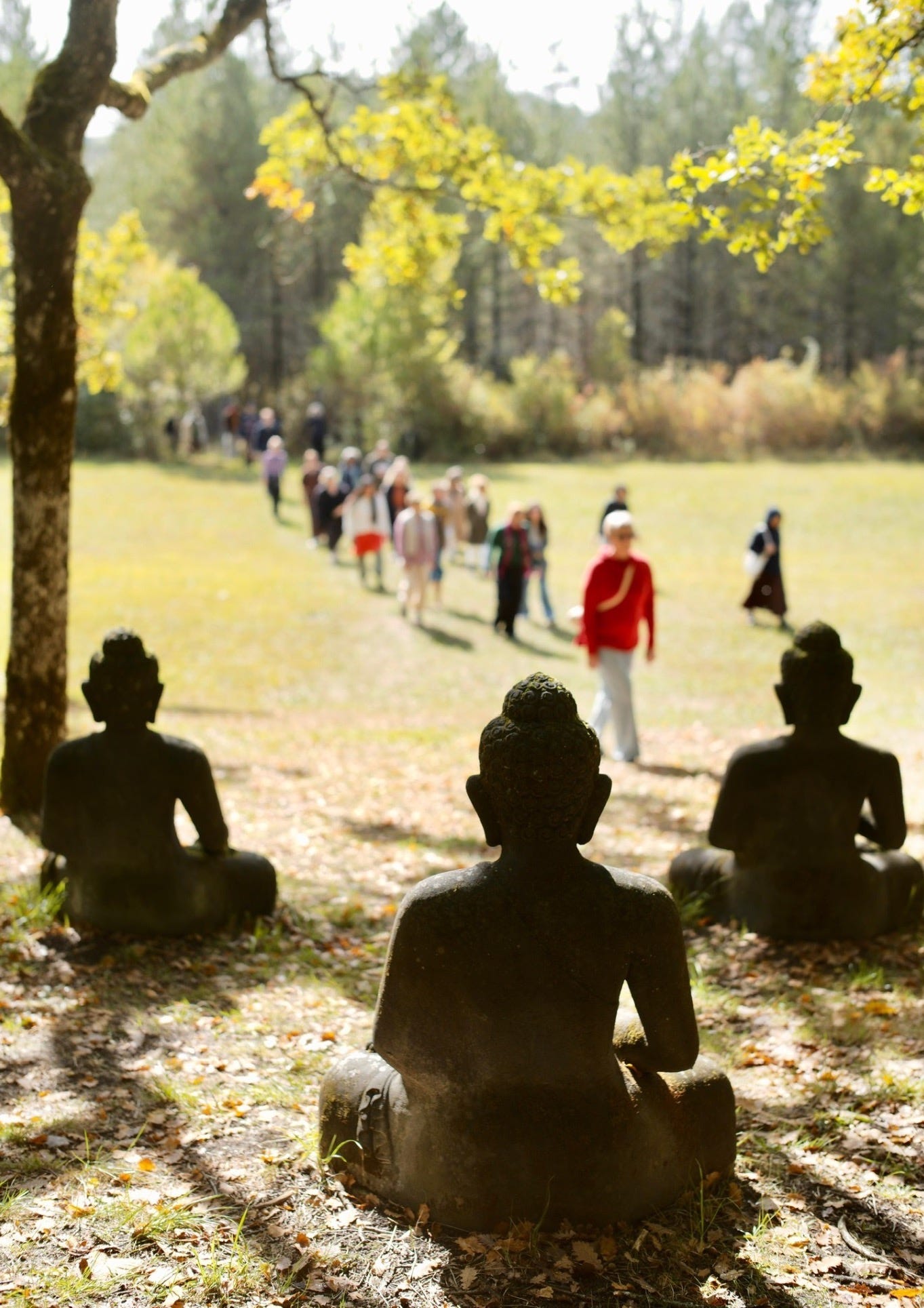
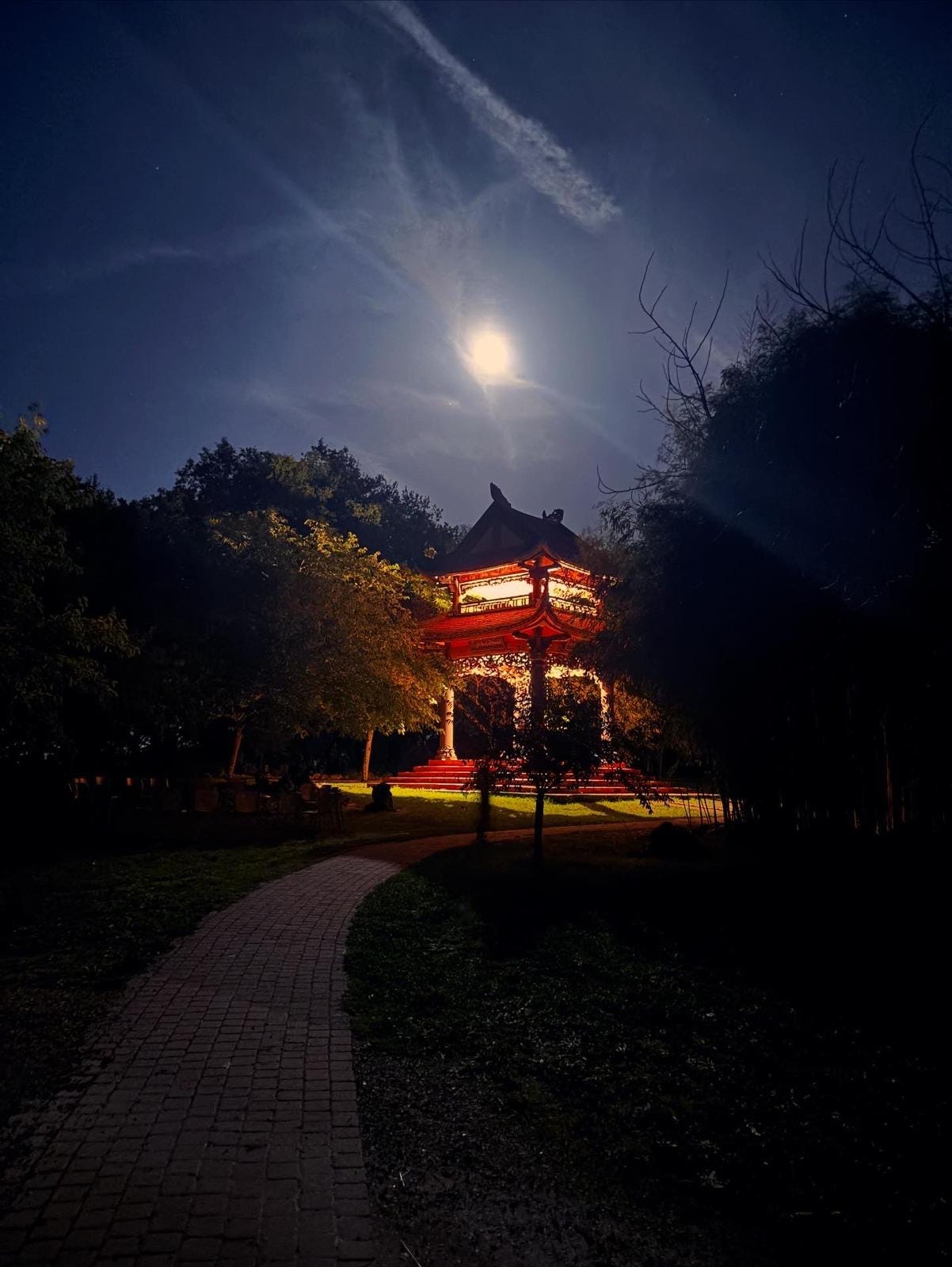
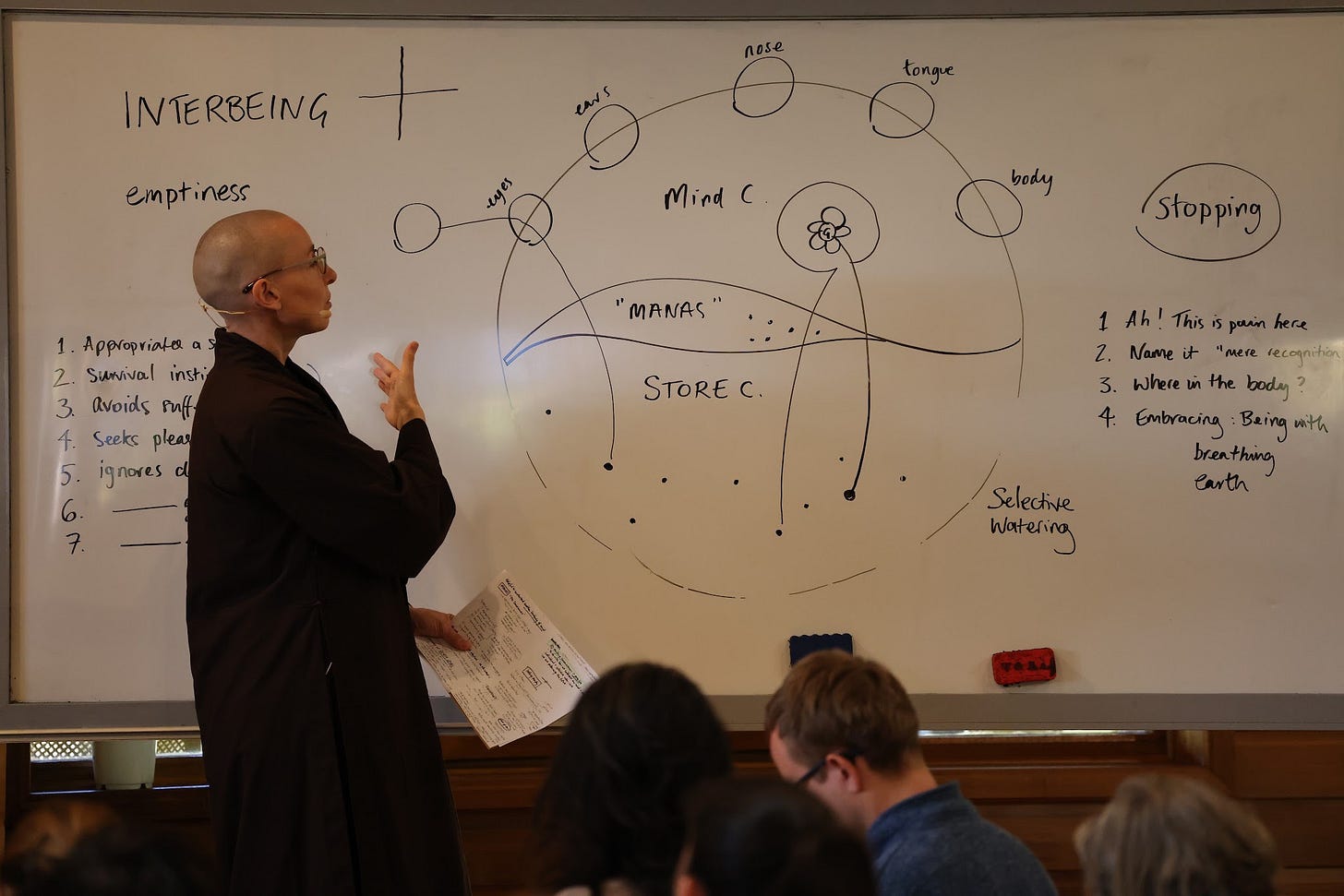
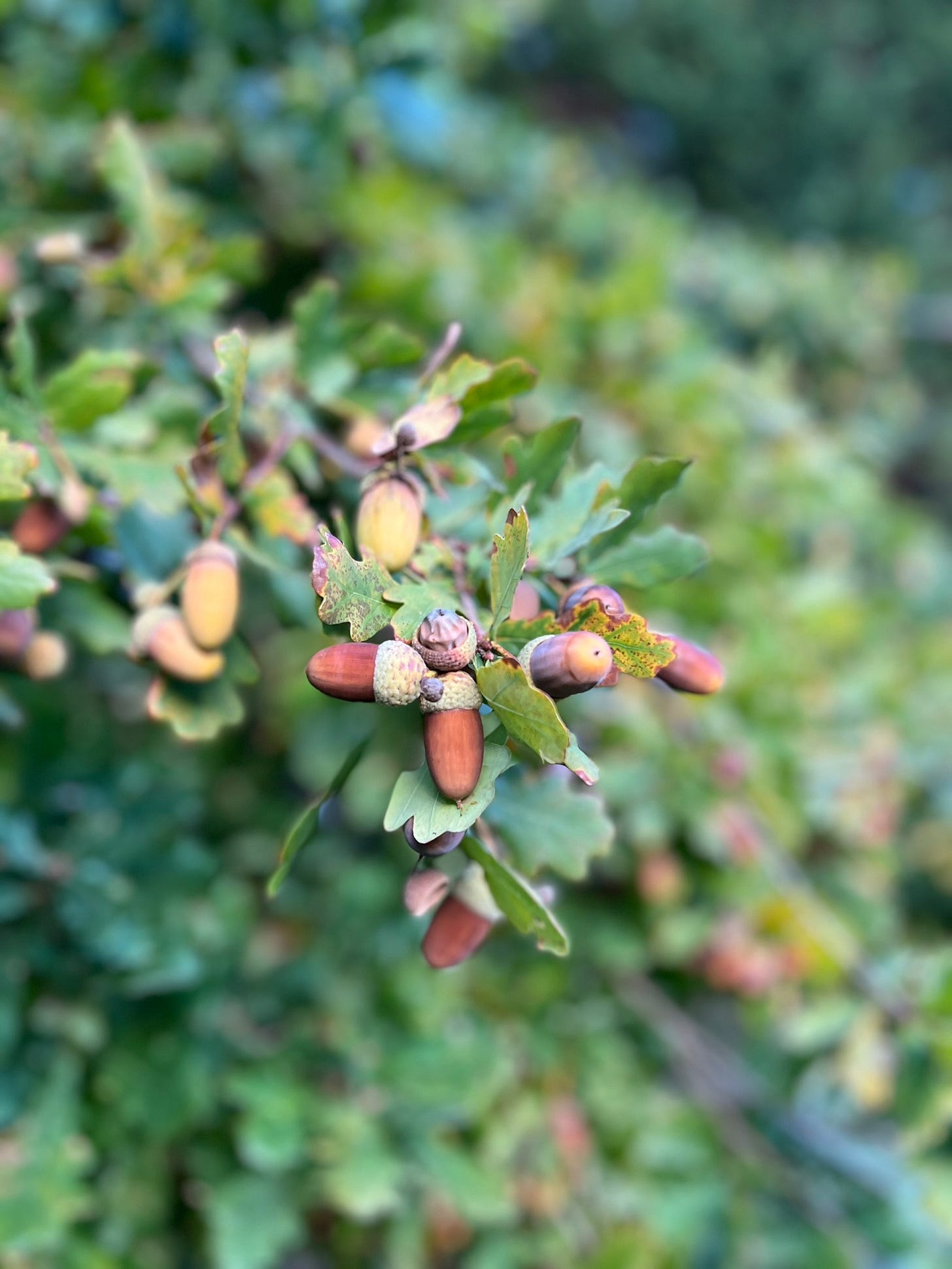
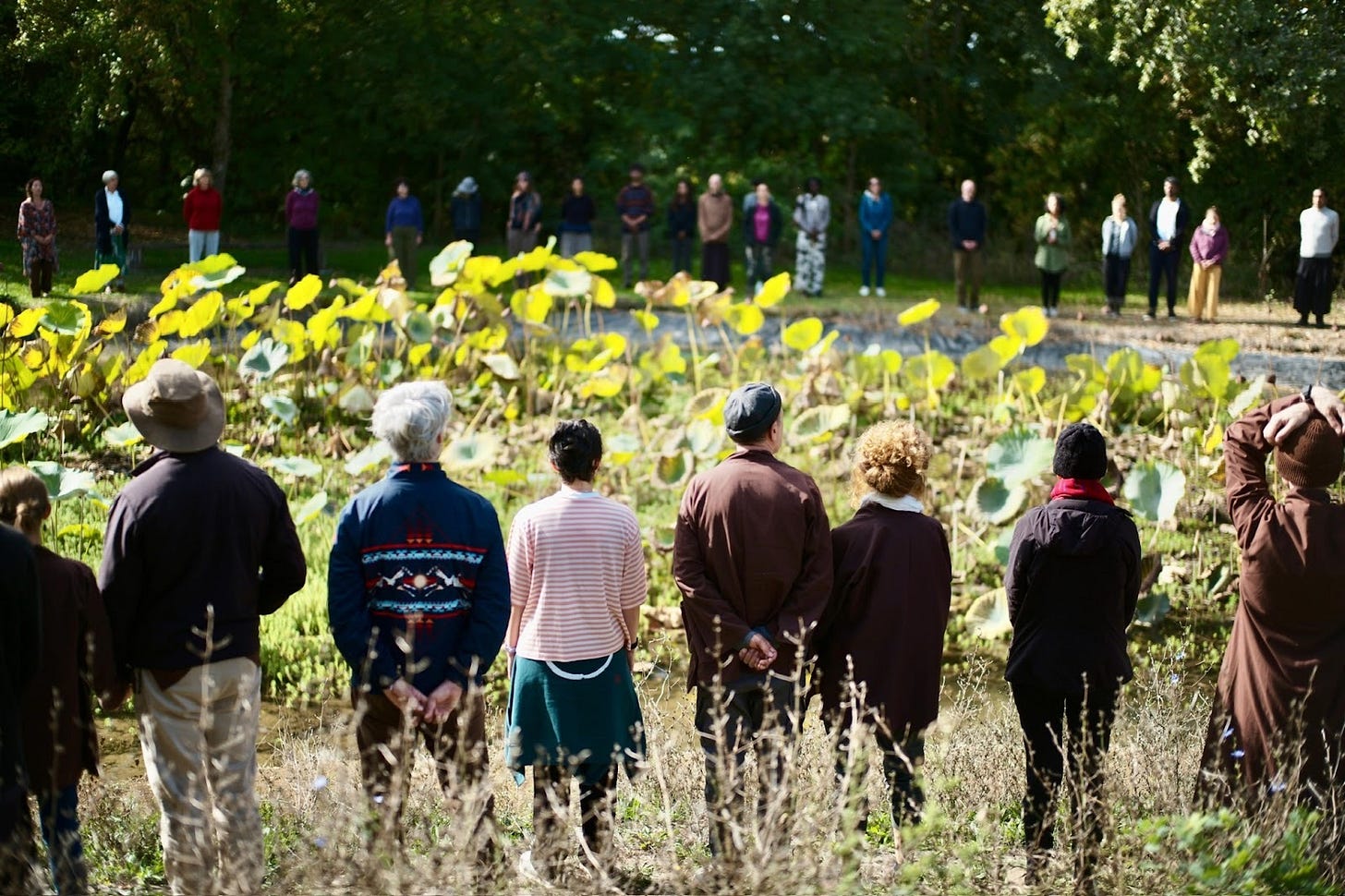
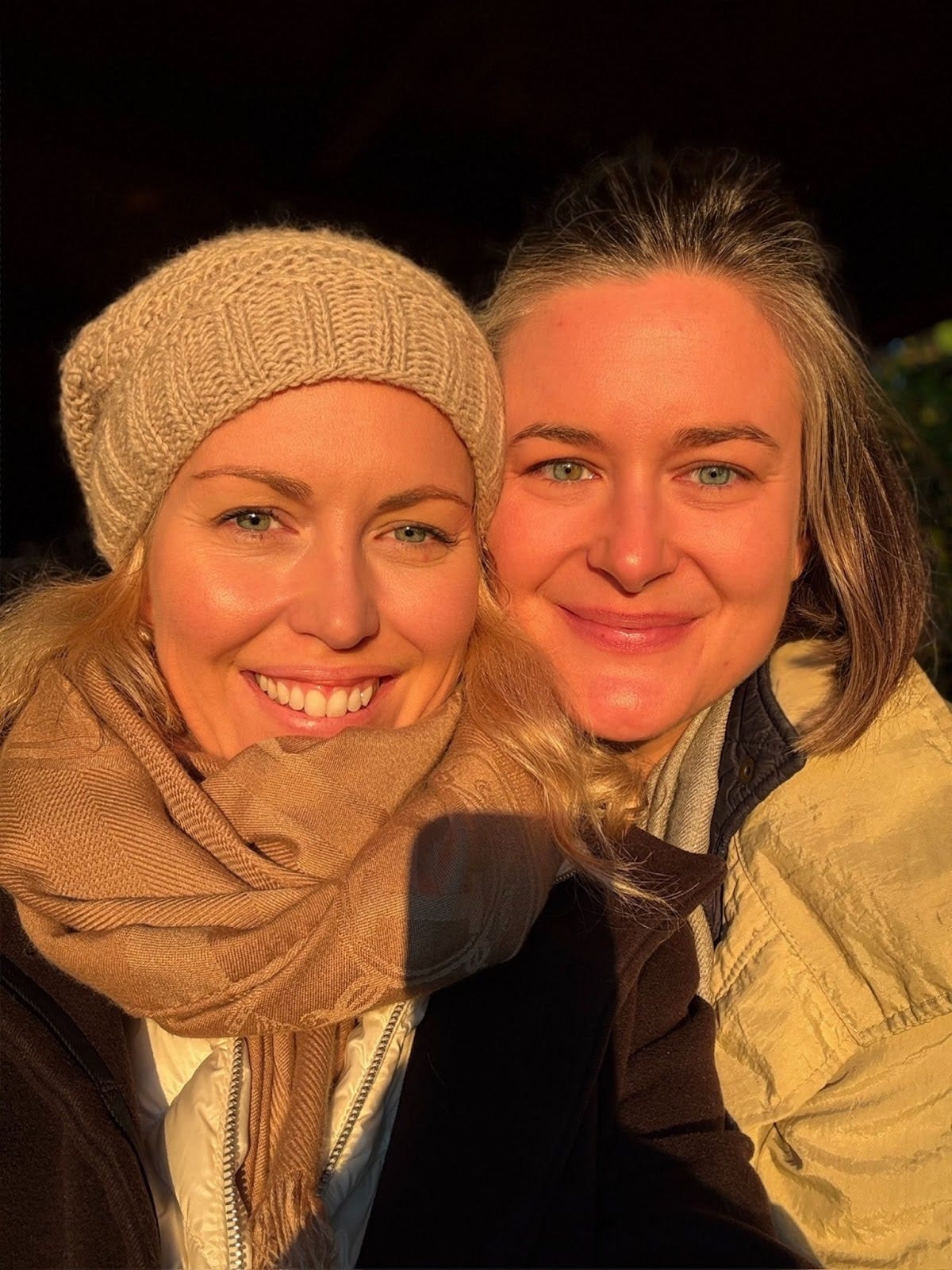


Going to try to attend my very first Substack Live for this! If I can squeeze one more thing into the busiest week of the semester...
Wow, the "healing hospital" description really hit me. What if our urban spaces could integate even a fraction of that stillness? It sounds like a much needed system reboot.